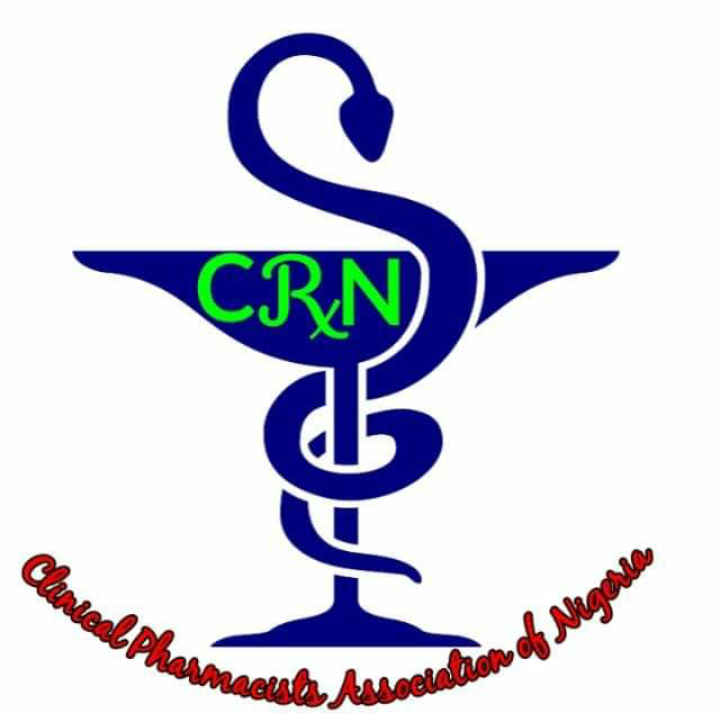By Nathan Ohiomokhare.
Many a time the challenge health care providers face all over the world in is the patients lack of compliance with medication therapy regimens as agreed with prescriber. Various research have been done on medication compliance which is a major topic within the pharmaceutical care space. Several reasons are documented for patients non compliance.
Compliance issues are commonly faced by patients who are on medications for short term treatment of curable diseases such as infectious diseases - hypercholesteremia, Malaria, Typhoid, or for life long illnesses that are managed such as Diabetes, Phaechromocytoma, Hypertension, Congestive heart Failure, etc. During the process of dispensing and counseling patients on their medication the Pharmacist usually requests for information on previous medication being taken and compliance to the medication especially if it is a refill prescription. When the Pharmacist identifies a lack of compliance an inquiry is made as to reasons for non compliance. Excuses normally given by patients for not being able to follow medication regimen include:
- 1) Cost -drug is not affordable or there was an upward market review of the price.
- 2) Side Effects - the drug causes more discomfort than the patient can tolerate.
- 3) Forgetfulness - normally the patient forgets to take or apply a particular dose resulting in some missed doses.
- 4) Communication - patient was inadequately counseled and so did not fully understand how to use medication as well as the importance of the medication.
- 5) Concerns about Privacy - HIV positive patients on ARVs usually make this complaint related ti stigma and so have to travel long distances avoiding their nearest pickup location for bimonthly refills of prescriptions. When transportation affordability becomes a problem compliance becomes an issue.

Interestingly while looking at the available literature from the United states and Europe the reason of "availability with the medicine" (i.e patient could not find the drug in a Pharmacy) is not indicated as one of the common reasons for poor medication compliance. Rather such reason seems to be more common in the African setting.
One of the commonest excuses given by patients for non compliance is that the medicine was not accessible. Further drill down into this excuse will break the lack of accessibility to :
- a) The medication is not affordable to the patient
- b) Patient could not find the medication in any Pharmacy outlet.
- c) Patient can not find the recommended brand or generic form.
- d) The patient doubted the genuineness/authenticity or the brand seen.
This is a Health supply chain challenge. Research shows that health supply chain interruptions have a direct Compliance, Pharmacoepidemiological and Pharmacoeconomic impact on the patience medication therapy and National treatment planning. The specifics are :
1)It affects the patients ability to afford the drug. Scarcity increases value (Basic economics).
3) It impacts health supply chain data negatively by causing inaccuracy in drug consumption patterns across populations.
4) It impacts health planning at the facility, state and national level by its effect on (3) above.
5) It affects patients trust and confidence in the health system.
6) It compels Physicians to prescribe less desirable alternatives
7) It exposes patients to less efficacious or more expensive alternatives.
8) It increases the overall cost of the patients access to treatment.
9) It increases the overall cost of healthcare to the system.
Health Supply Chain expertise is important to patient medication compliance because it operates on the principle of bridging the gap between the drug and the patient. It is the movement of the drug product from the point of origin to the last mile where it is consumed. It involves several robust components such as manufacturing, inventory Management, Information management, distribution (logistics transportation), warehousing and service points or point of care.
A Supply chain that is well planned and working optimally will bring the right drug at the right quality from the manufacturer to the patient at the right location, the right time, in the right condition, at the right price. This is the concept of the 6 rights that serves as the fulcrum of Health Logistics and Supply chain management. They must be guaranteed and are non negotiable just like the fundamental human rights of an individual.

An example is HIV treatment drugs known as ARVs (Anti retroVirals) which are used extensively and in different Fixed Dose Combinations (FDC) in HAART (Highly Active Anti Retroviral Treatment). A cardinal principle being that treatment with ARVs can not be interrupted as the consequences are huge and ranges from drug resistance and cross resistance, treatment failure to death. Same goes for Tuberculosis (TB). I personally experienced the impact of supply chain interruptions on HIV positive patients who were meant to refill bimonthly supplies of ARV FDCs at the Special Treatment Clinic. Patients on regimens that had Lopinavir as part of the combination had issues because the drug was out of stock for almost 3 months. This was because Lopinavir had been touted as one of the Antiviral drugs effective against the nCovid-19 Virus. Consequently this caused an instant shortage of the drug as the main source China stopped exporting it and National governments started redirecting remaining supplies in stock towards managing Covid-19 treatment in Isolation centers. There was a national shortage in Nigeria. We were helpless in the treatment clinic. One patient even told me she had gone without the drug for the second month running and it was part of a second line regimen recommended for her since the first line FDC had failed due to resistance. All I had to give at that point was empathy. It was almost a month later that I saw on a friends status who is a warehouse manager at GHSC-PSM that Chemonics had been able to secure fresh supplies of Lopinavir for the country.
The above are ample reasons public health experts and health policy makes in the executive arms of government and legislature should prioritize optimizing and integrating Pharmaceutical supply chains in both private and public sectors nationwide towards maximizing utilization of funds and reducing the overal cost of healthcare.
References
Cennimo D.J, 2020, What is the role of the antivirals lopinavir/ritonavir in the treatment of coronavirus disease 2019 (COVID-19)?, Medsacpe, accessed at url https://www.medscape.com/answers/2500114-197452/what-is-the-role-of-the-antivirals-lopinavirritonavir-in-the-treatment-of-coronavirus-disease-2019-covid-19 on 4th February 2021.
McGrail S, 2020, Fundamentals of Pharmaceutical Supply Chain, Supply Chain News, Pharmanews intelligence, Xtellingent Healthcare Media, accessed at https://pharmanewsintel.com/news/fundamentals-of-the-pharmaceutical-supply-chain on 4th February 2021.
Ross M, What is Medication Compliance: 5 Things Providers Should Know, Medication Compliance, Cureatr (Comprehensive Medication Management), Accessed at url https://blog.cureatr.com/what-is-medication-compliance-5-things-providers-should-know on 4th February 2021.
Resnick R, 2018, How Medication Compliance Affects Patient Outcomes, Cureatr (Comprehensive Medication Management), accessed at https://blog.cureatr.com/how-medication-compliance-affects-patient-outcomes on 4th February 2021

